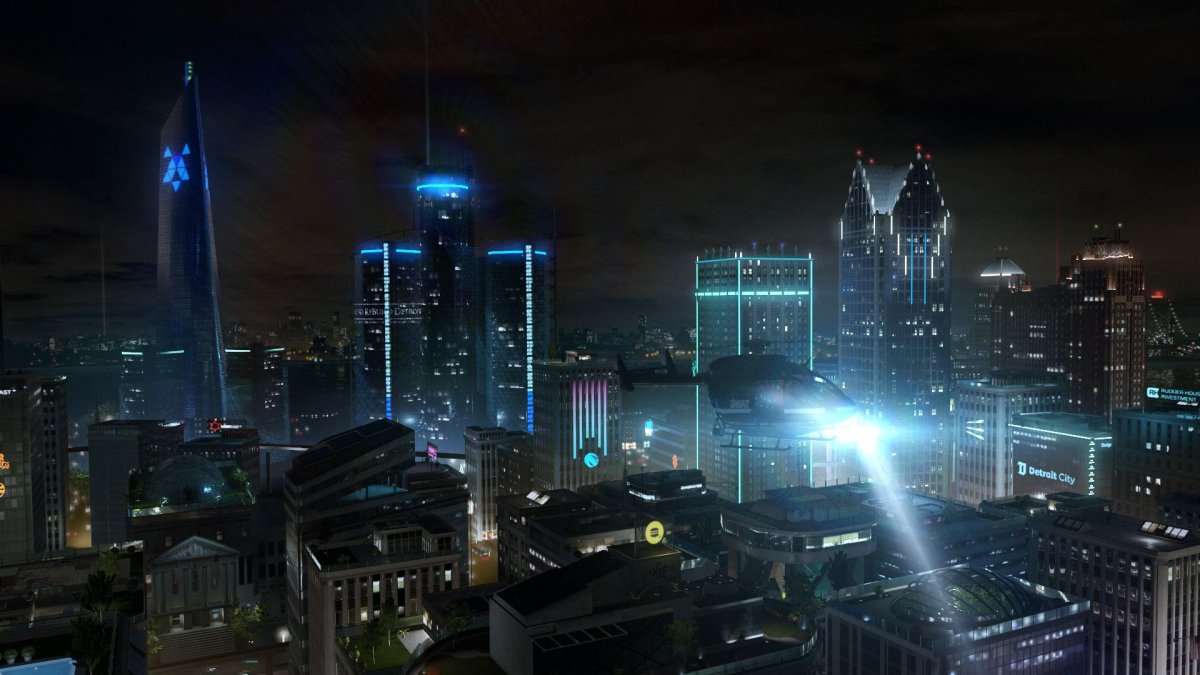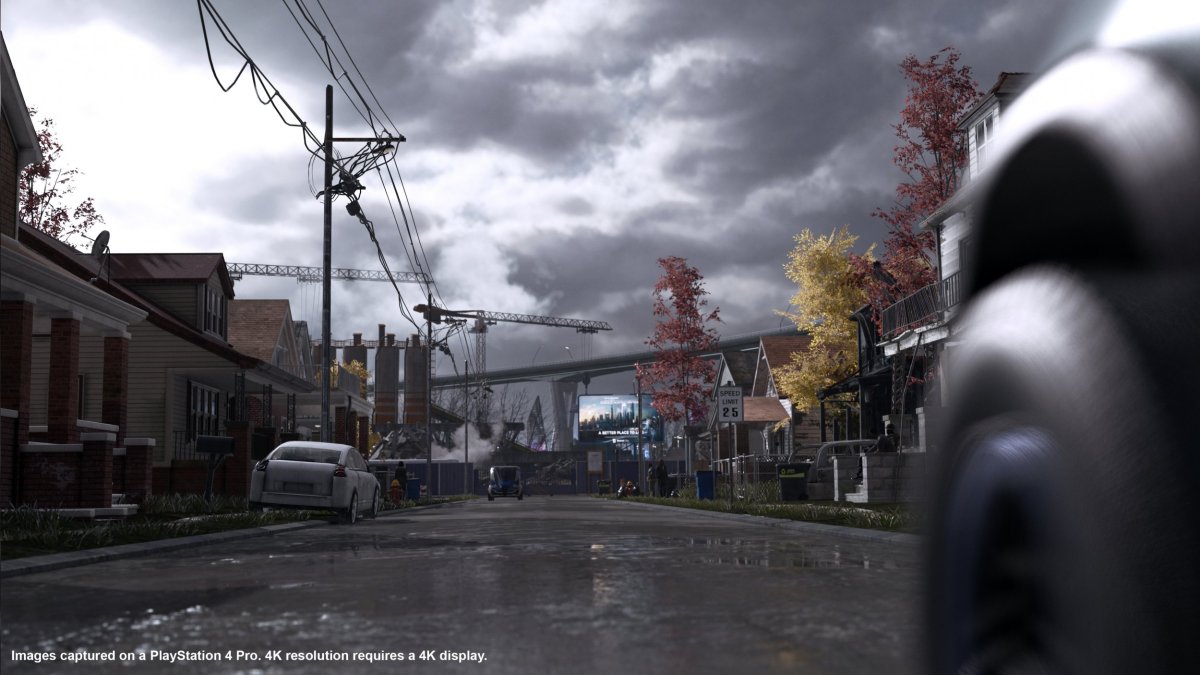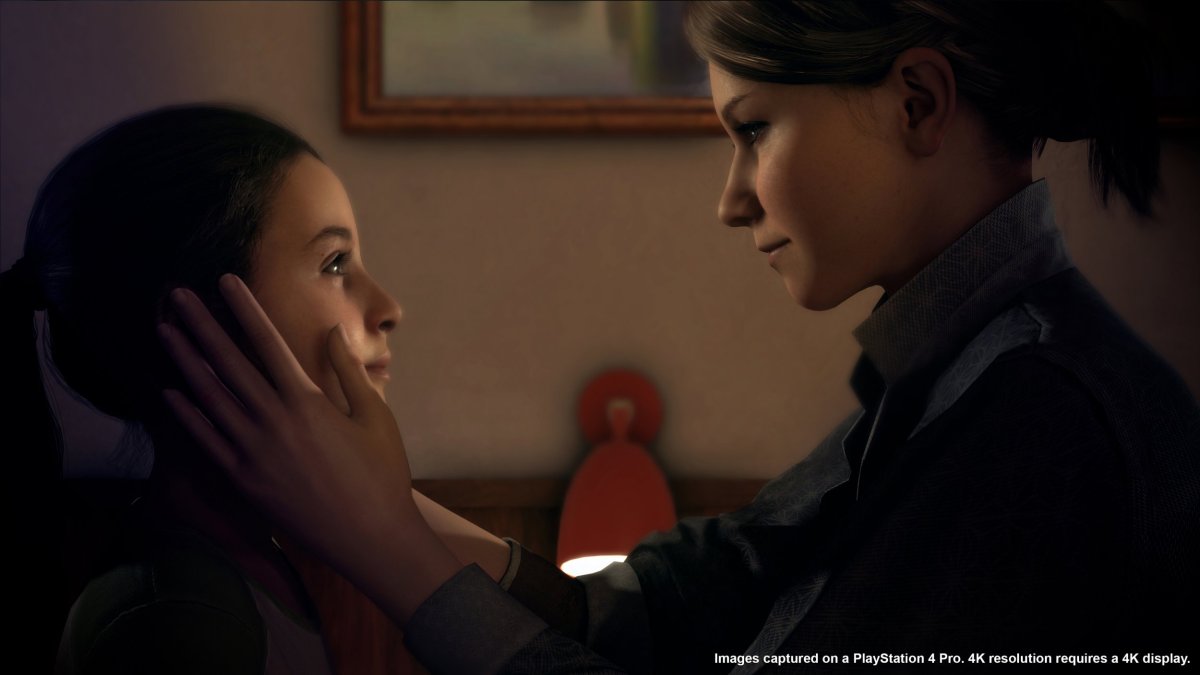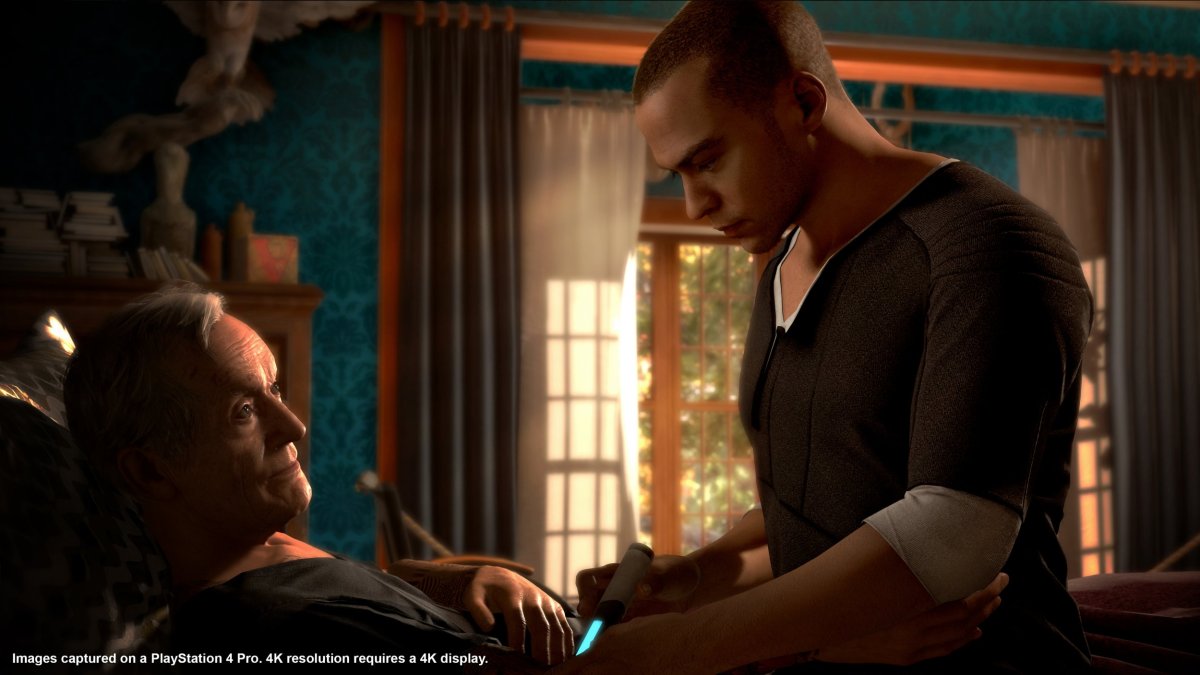It's twenty years in the future. Iconic landmark brick buildings harmonize with twinkling glass and steel skyscrapers. It's recognizably Detroit, but with an unmistakable veneer of gentrification. A mag-lev train hums through an outdoor luxury shopping center, where a slick minimalist retailer, CyberLife, sells androids for roughly the price of a high-end PC. "Hard work for her, free time for you," announces an advertisement placed alongside a wide-eyed, perfect replica of a human being.

This is the world of Detroit: Become Human, the latest game from director David Cage, known for immersive interactive adventures Heavy Rain and Beyond: Two Souls. The development team at Paris-based Quantic Dream spent several weeks in Detroit doing research for the project, scouting locations and talking with locals to refine the game's setting and atmosphere. Their aim: to create a near-future vision of the city that honored its complex history without exploiting it.
"What was important to us was to be respectful of the city and the people living there," Cage told Newsweek. "We really imagined Detroit in the near future where wealth comes back, industries settle there, and it becomes the center of the world again the way it was during the automobile age."
Motor City may have been reborn as Android City in Detroit: Become Human, but not everyone benefits from the robo-powered economic boom. Working-class people openly voice their resentment at the androids like Markus, one of three protagonists in the game, hurling insults, expletives and even fists at Markus as he goes about his daily errands. Android bans are in effect in stores throughout the city. Tabloid magazines scattered about the in-game environments quail at the possibility of androids stealing their owners' personal information, or even stealing the affections of a husband.

"When we talk about technology, often, we talk about the fact that it's going to be cool, it's going to do all these things for us. But at the same time, technology will deeply change our societies," said Cage. "It would be the wealthier part of society who would benefit from technology, who would buy androids, and they wouldn't lose their jobs because of androids. They would only benefit from it. Technology is not going to be perceived by different classes of people in the same way. That's something I wanted to play with."
Detroit' s androids are far more than Alexa 2.0: they're keen-eyed detectives, sympathetic negotiators, stalwart caregivers, even loyal friends. You'll step into the shoes of Markus and two other playable characters: Kara, a housekeeper and Connor, an assistant to the local police (Markus looks after an artist in failing health.) All three are androids, and while you'll encounter humans as secondary characters, you'll never take control of one.

"Having a human being would have changed the point of view a lot," Cage explained. "We tried to create an experience that is different, that really is going to ask questions of the player and put him in the shoes of these people who want a different life somehow, and feel they have been poorly treated."
In Detroit, some of these mistreated androids become "deviants," rebelling against their owners, sometimes violently. Each of your characters encounters their own moments of truth, when they must choose between their programming or their newfound free will.
"My androids are discriminated against because they are just machines, and they are treated as such. But they feel they are something else," Cage explained. "It's this moment of conflict, where they need to fight for who they are and to be accepted."

Like Cage's previous games, Detroit aims to give players an unprecedented amount of agency in how they shape and experience the story. There are no fail states. Playable characters can die, and the narrative will continue.
"The most important aspect of this project is to create the most branching narrative we have ever created," said Cage. "We didn't want to play with smoke and mirrors, making you think that there's a choice, but in the end it doesn't matter anyway. We accepted that we would produce content that maybe 10 percent of the people playing would find … most people step back and say, 'that doesn't make any sense, to make something that's for 10 percent of the players.' But it's exactly the experience we tried to create."
Cage added that the game's choice trees, which can be viewed through an in-game menu at any time, yield a staggering number of possibilities. At present, he estimates the game contains about 65,000 variables. The game's script weighs in at somewhere between four and five thousand pages, and during peak development times the team working on the game numbered more than 200 people.
The team behind Detroit wasn't looking to make the next Fortnite. Instead, they made a game that explores thorny cultural issues--gentrification, discrimination and automation among them--in a way that's almost pointedly un-trendy in the broader context of the industry. It's an intellectual challenge more than a button-mashing one, which asks players to consider complex problems from multiple perspectives.
"There's a lot of emotions, a lot of scenes that, usually, you don't find in video games," Cage told Newsweek. "We believe that games are a legitimate medium, as legitimate as literature, to talk about very dark and serious things. That's a statement by itself, and we'll see how the community reacts."
Detroit: Become Human comes to PS4 May 25.
Uncommon Knowledge
Newsweek is committed to challenging conventional wisdom and finding connections in the search for common ground.
Newsweek is committed to challenging conventional wisdom and finding connections in the search for common ground.
About the writer
Jen Glennon is a wide-ranging enthusiast of pop culture, who covers film, television, gaming and broader social trends. She particularly enjoys ... Read more
To read how Newsweek uses AI as a newsroom tool, Click here.








